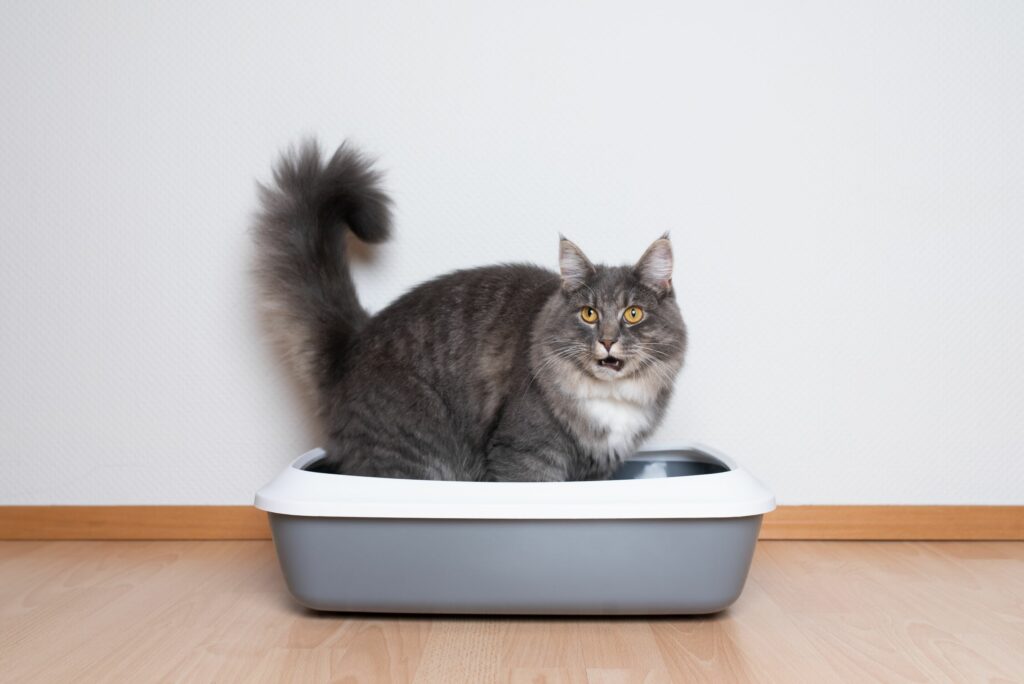
What is Feline Idiopathic Cystitis?
Feline Idiopathic Cystitis (FIC) refers to inflammation in a cat’s lower urinary tract (bladder or urethra), which develops without any obvious underlying cause.
We do know however, that FIC is linked to stress in cats. In the same way that a human might suffer from an upset stomach as a result of stress, certain cats are prone to a recurring upset bladder triggered by stress.
FIC is a painful condition often requiring veterinary treatment. However, there are steps that can be taken to reduce the likelihood of a subsequent episode (see below).
Signs of Feline Idiopathic Cystitis
The signs of FIC are the same for any Feline Lower Urinary Tract Disease and may include any or all of the following:
- blood in the urine
- straining to urinate
- urinating outside the litter box
- urinary blockage (almost exclusively a male cat problem and constitutes an emergency.)
- licking the urinary opening (usually due to pain)
- reduced appetite
- lack of energy or interest in normal activities
Too often, owners see inappropriate urination as a behavioural problem, however it can be attributed to FIC and require medical treatment.
What causes FIC?
When it comes to Feline Idiopathic Cystitis, the underlying cause is not known, however stress is seen as the biggest trigger. In simple terms, anxiety affects the cat’s hormones, which causes the protective lining of the bladder to become patchy. The cat’s urine then comes into direct contact with the tissue of the bladder and inflammation occurs.
Common triggers include:
- Stressed family environment (due to work, exams, etc)
- New baby or pet
- Construction work or noise
- Weather change
- New furniture
- Moving house
- Changing to a different food
- Change to routine
Management of Feline Idiopathic Cystitis
Managing cats with FIC requires a multimodal approach – incorporating a number of aspects aimed at preventing recurrent episodes. This includes environmental, behavioural and dietary modifications.
Firstly, it is vital to limit the amount of stress the cat experiences. Key points include:
- Provide one litter tray per cat plus one extra
- Litter trays should be kept in a quiet area away from food and cleaned regularly
- Cats should be provided with a quiet area to retreat to, away from other family members or pets
- Provide adequate stimulation for your cat, in the form of scratching posts and toys (nb. Toys should be rotated to avoid boredom).
- Provide separate food bowls for each pet
Diet
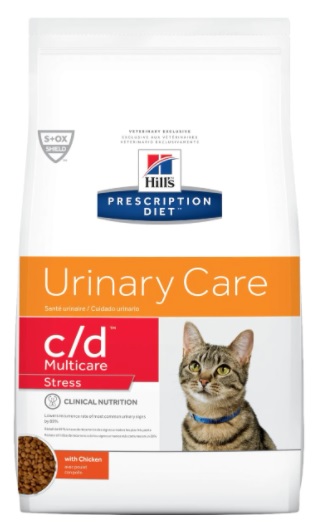
Choosing the right diet can play a vital role in minimising the risk of recurrent FIC and subsequent complications.
FIC is associated with the presence of urinary crystals or stones which form within the urinary tract and cause irritation, pain, and potential obstruction. However, providing the right diet can influence the pH, or acidity of urine, causing the urine to become moderately acidic and making it harder for struvite crystals to grow.
For example, Hills Urinary Care is specially formulated to moderate the intake of calcium, phosphorus and magnesium – minerals that are commonly found in supermarket brands and dangerous to cats susceptible to FIC.
Likewise, it is thought wet food is more beneficial to dry food, most likely because of the higher water content.
Weight Management
Whilst the choice of food is extremely important, it should also be noted that the amount of food served is critical too. Overweight cats are far more susceptible to FIC. The most effective way to manage a pet’s weight is through the amount of food they are fed. We would be happy to work out a plan to get your cat to their optimal weight and ensure they stay that way.
Behavioural Modification – encouraging drinking
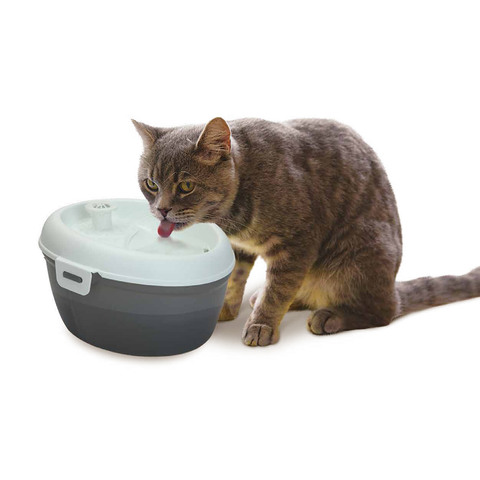
Along with modifying the home to ensure a stress-free environment, it is necessary to look at ways to modify the cat’s behaviour too. Encouraging water intake and more frequent urination is thought to be helpful in FIC, as it promotes a healthy urinary tract and to helps lower the risk of urinary tract infections.
Cats can be curious creatures when it comes to drinking water, and often prefer a running tap to their water bowl. To encourage your cat to drink, try having numerous water bowls available, use ceramic as opposed to plastic or glass, or try using a water fountain to mimic running water.
Natural Supplements
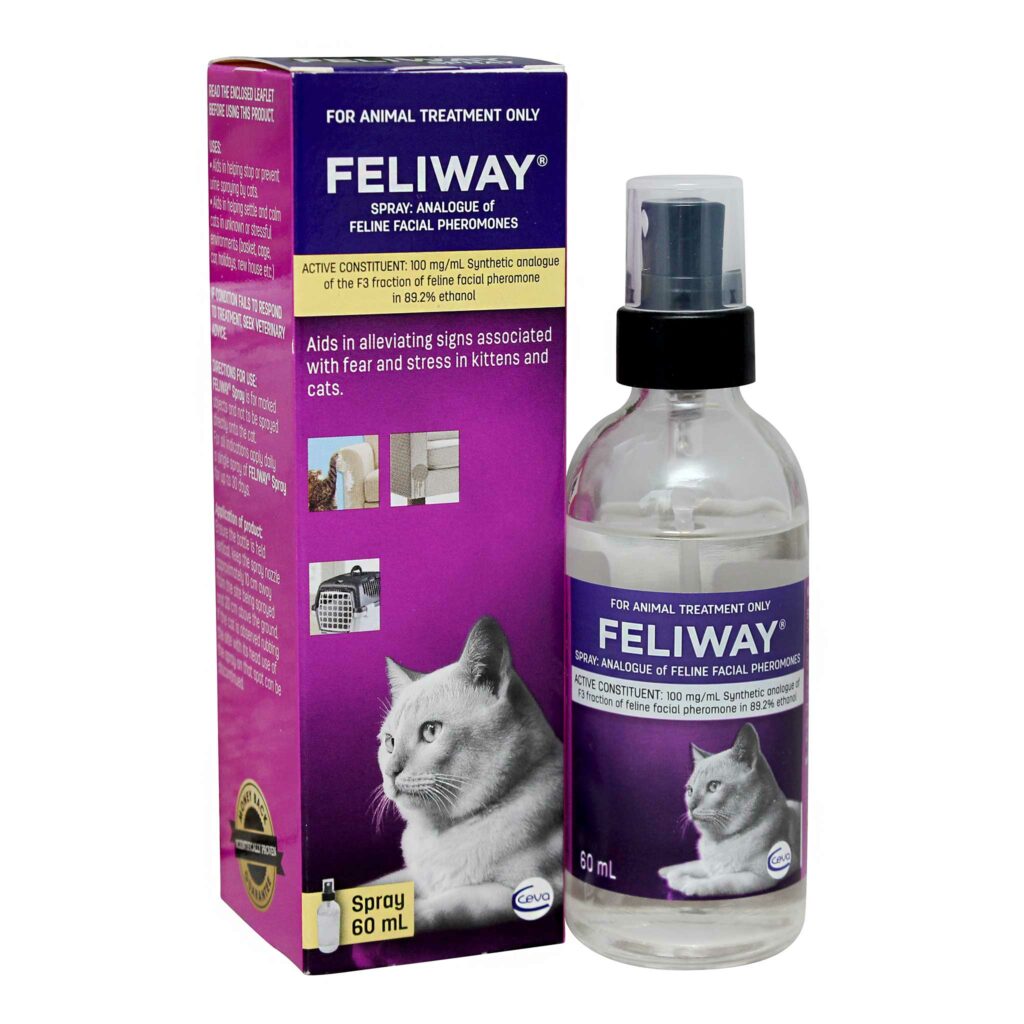
In addition to environmental changes, natural supplements have been proven to help reduce anxiety in cats. For example, Feliway is a synthetic copy of the feline facial pheromone, that cats leave naturally when they are feeling safe and secure. By using a Feliway spray or diffuser, cats can feel calmer within their own environment, therefore reducing their stress and anxiety.
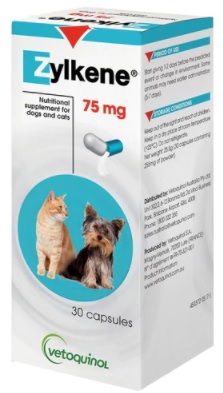
Zylkene is a non-medicated supplement for cats and dogs specially formulated to aid in the management of anxiety and stress. It contains a natural product derived from casein, a protein in milk. It is a molecule well known to promote the relaxation of newborns after breastfeeding. The capsules contain a palatable, water soluble powder that appeals to both dogs and cats. They can be given whole or opened and the powder mixed with food, treats or liquids.
Medicinal supplements
Alongside the above strategies, some cats may benefit from medicinal supplements to help lower their anxiety. Speak to your veterinarian about creating a stress-free environment for your cat, and whether adding a medicinal supplement would be right for your cat.
